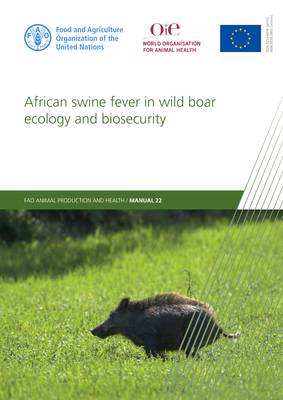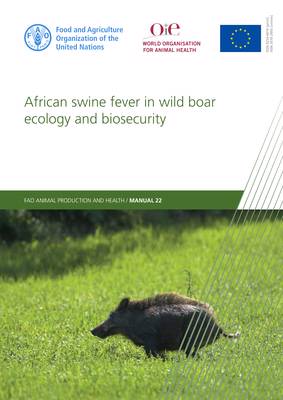
- Afhalen na 1 uur in een winkel met voorraad
- Gratis thuislevering in België vanaf € 30
- Ruim aanbod met 7 miljoen producten
- Afhalen na 1 uur in een winkel met voorraad
- Gratis thuislevering in België vanaf € 30
- Ruim aanbod met 7 miljoen producten
Zoeken
African Swine Fever in Wild Boar Ecology and Biosecurity
Food and Agriculture Organization, Vittorio Guberti
€ 81,45
+ 162 punten
Omschrijving
This paper provides a fact-based overview of African swine fever (ASF) ecology in the Northern and Eastern European populations of wild boar, and briefly describes a range of practical management and biosecurity measures that can help stockholders to address the problem in a coherent, collaborative and comprehensive way. Currently, the disease is endemic in wild boar populations in several countries and continues to expand its range in Europe, causing serious concern. Controlling this sylvatic epidemic of ASF is a challenging task for veterinary authorities, given the complexity of the disease epidemiology, the lack of previous experience, the unprecedented geographical scope of the problem, and its transboundary and multi-sectoral nature In order to reduce risks and prevent the negative implications of the now widespread presence of ASF in the ecosystems of northern and eastern Europe, this publication calls for close and continuous cross-sectoral collaboration among veterinary authorities, forestry and wildlife management agencies, nature conservation and hunting bodies, organizations, communities and clubs.
Specificaties
Betrokkenen
- Auteur(s):
- Uitgeverij:
Inhoud
- Aantal bladzijden:
- 104
- Taal:
- Engels
- Reeks:
Eigenschappen
- Productcode (EAN):
- 9789251317815
- Verschijningsdatum:
- 1/02/2020
- Uitvoering:
- Paperback
- Formaat:
- Trade paperback (VS)
- Afmetingen:
- 174 mm x 244 mm
- Gewicht:
- 249 g

Alleen bij Standaard Boekhandel
+ 162 punten op je klantenkaart van Standaard Boekhandel
Beoordelingen
We publiceren alleen reviews die voldoen aan de voorwaarden voor reviews. Bekijk onze voorwaarden voor reviews.











